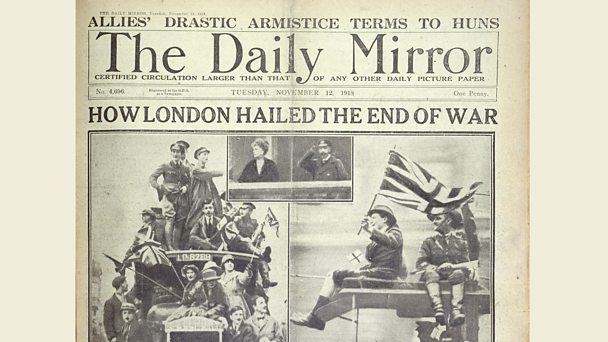
The League of Nations and Diplomatic Idealism The aftermath of World War I revealed that the way leaders make peace can be used as kindling for the future fires of war. One French military leader predicted with alarming accuracy that the treaty did not represent peace but rather an “armistice for twenty years.” Economist John Maynard Keynes quit his post with the British delegation to Versailles over the treaty, which he argued was too punitive and would lead to catastrophe in Europe. But some observers at the time had doubts it would ensure an end to hostilities.

The exact role of the peace agreement in dooming the world to another war is still hotly contested.

In 1923, Nazi leader Adolf Hitler said the treaty was designed “to bring twenty million Germans to their deaths and to ruin the German nation.” One of the central tenets of the Nazi party was to undo the deal, and campaign promises like those helped the group gain followers. Negotiations dragged on for months, but in the end, the Treaty of Versailles forced Germany to accept blame for the conflict, give up its overseas colonies and 13 percent of its European territory, limit the size of its army and navy, and pay reparations (financial damages) to the war’s winners.īack home, Germans were incensed and staged protests over what they saw as harsh and humiliating terms. Meanwhile, French Prime Minister Georges Clemenceau, fearing a resurgent Germany on France’s border, pushed for a deal that seemed to some more punishment than peace.
#When did world war 1 end free
Wilson’s Fourteen Points also called for arms reductions and free trade and helped lay the groundwork for the principle of self-determination-the concept that groups of people united by common characteristics should be able to determine their political future. This framework, known as the Fourteen Points, advocated for the establishment of an international organization called the League of Nations, which would be staked on the idea of collective security, meaning the invasion of one country would be treated like a threat to the entire group. President Woodrow Wilson wanted to structure peace according to his framework for preventing future global conflicts. Without German input, the victors-led by the United States, France, and the United Kingdom-decided what peace would look like after the conflict. This particularly stirred resentment in Germany, the largest and most powerful defeated country. However, in a break with tradition, those on the losing end of the conflict were excluded from the conference. In 1919, representatives from more than two dozen countries gathered in France to draft peace treaties that would set the terms for the end of World War I. This lesson examines the era between World Wars I and II-also known as the interwar period-breaking down those issues that set the stage for the world’s second and far deadlier global conflict. Various other economic and political challenges had been building up tension for years.
#When did world war 1 end series
But that event was only the final straw in a series of events. Granted, Germany’s invasion of Poland in 1939 triggered declarations of war from France and the United Kingdom, formally starting World War II. So why did the world return to combat just two decades later to fight World War II?


When World War I ended in 1918, the last thing people wanted was an even greater conflict.


 0 kommentar(er)
0 kommentar(er)
